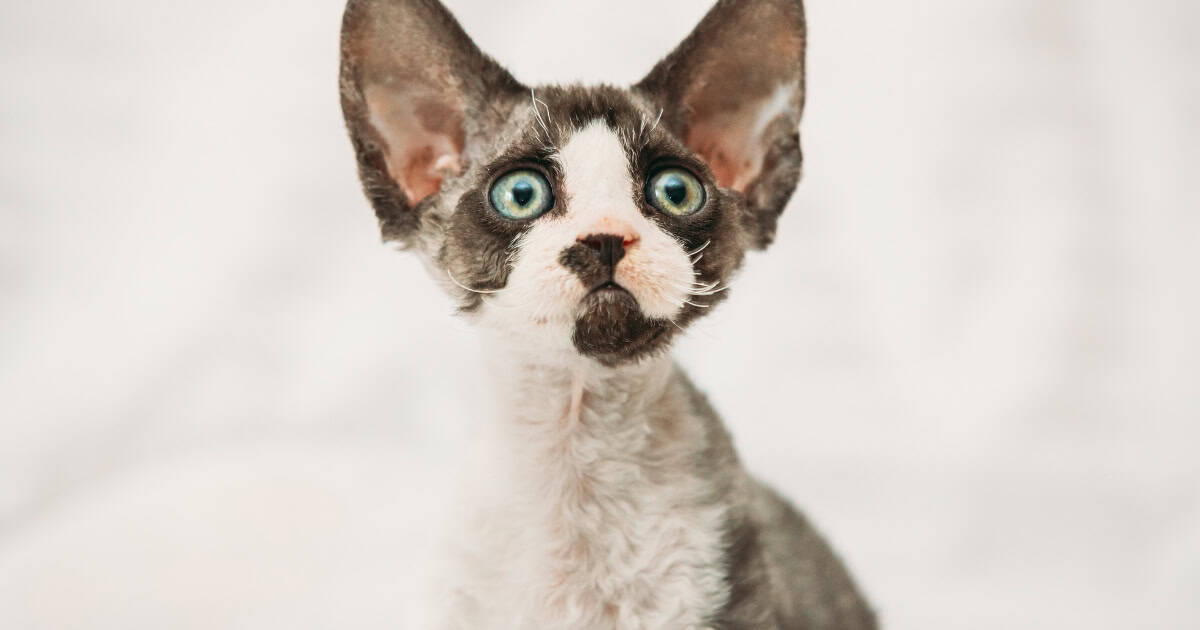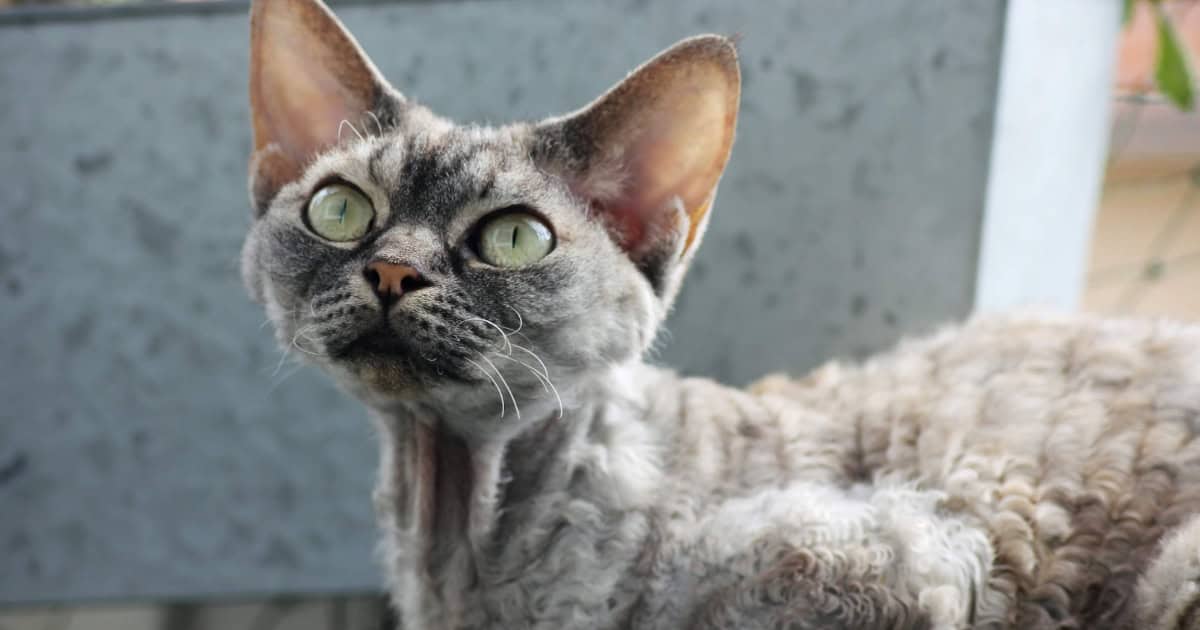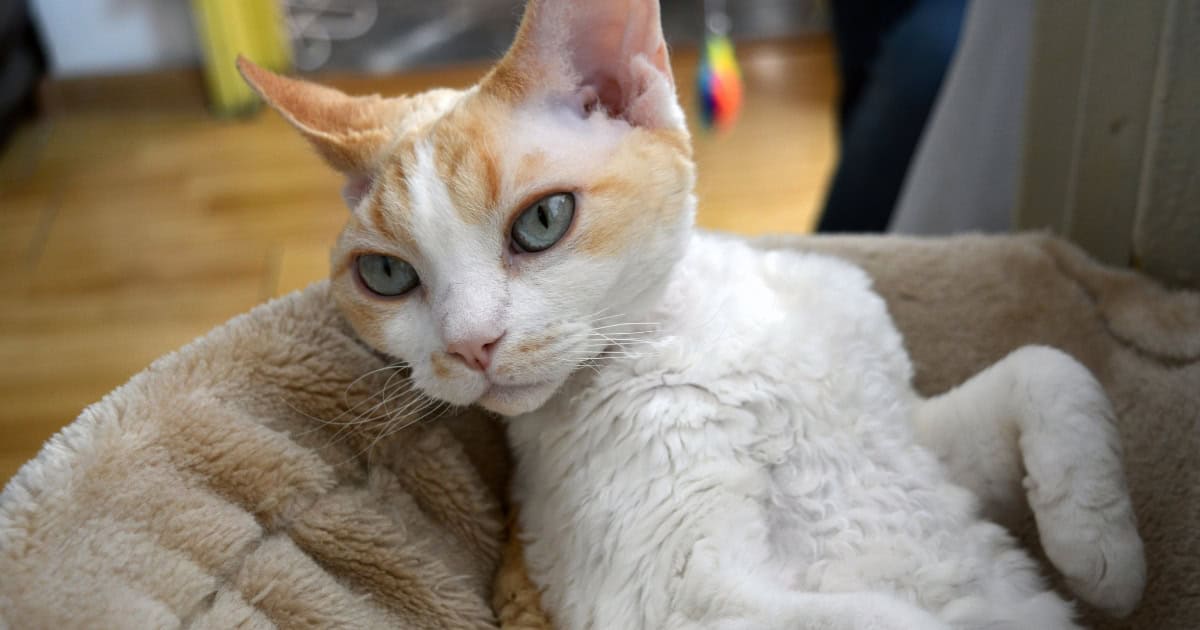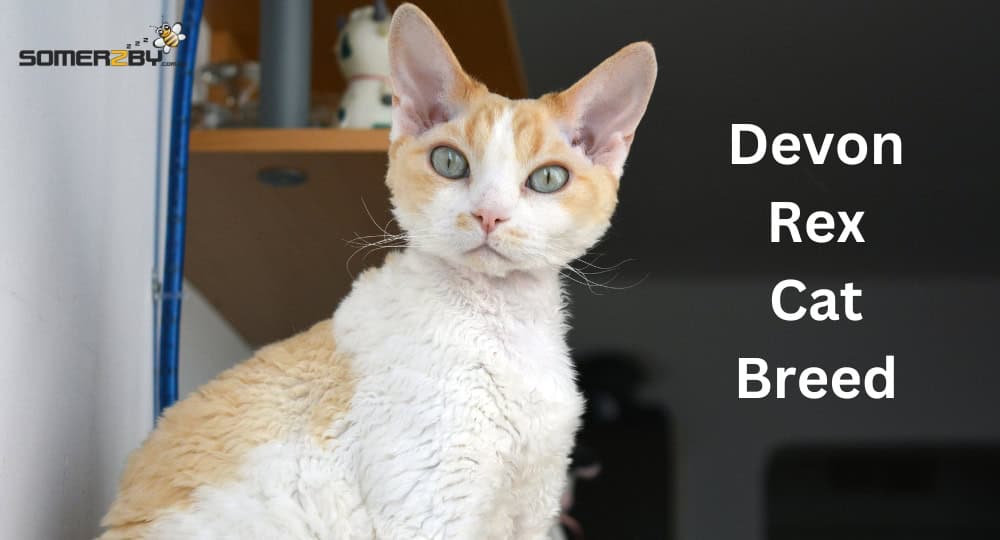Cats
The Pixie Ear Devon Rex Cat Breed
The Devon Rex cat breed is affectionately nicknamed ‘pixie cat’ or ‘alien cat’ because of its unique appearance, particularly its thin body and pointy ears.
The breed makes a great pet as they are highly energetic and love the company of humans. Read more about this gorgeous cat breed in our blog below:
table of contents
Colour & Hair
Devon Rexes come in a range of coat colours and patterns. Cat associations officially recognise Devon Rexes in any colour or pattern.
Their coat only comes in a short haired variety.
Appearance
The Devon Rex has a very distinctive appearance. They easily stand out and attract attention.
They are a small sized breed. They have a skinny body with a long neck, long legs and small feet.
Their most distinctive feature is their large, pointed ears which are wide at the bottom and set low on their head.
This gives them their ‘pixie’ or ‘alien’ appearance. It is also the feature that makes so many people instantly fall in love with them.
They have big, wide eyes that can be any colour including blue.
They are short haired with a soft and curly coat.
Their fur is similar to the Cornish Rex’s but with looser curls. Their coat is mostly undercoat and has a rippled wavy pattern throughout.
Their coats come in a wide variety of colours.
Temperament
The Devon Rex has a friendly and outgoing personality. They make wonderful pets for people of all ages, including families with children.
They are very sociable and love to spend their time around people. They will happily approach any of your house guests for a play and a cuddle.
They also love to spend time with other pets. They would prefer another cat to play with but also can get along well with dogs and other animals if introduced properly.
Their sociable nature does mean that they hate to be alone and get lonely if they are by themselves in the house all day.
Some people have compared their temperament to that of a puppy. They will always want to see what you are up to, stop for a pat then off to explore again.

Health
Devon Rexes are a healthy breed overall. They typically live to around 15 years old but can live longer if looked after well and kept healthy.
They are a small breed. Healthy Devon Rexes weigh between 2.5-4kg, with males weighing more than females.
Their most common health risks are hypertrophic cardiomyopathy aka. HCM (heart disease), patellar luxation (knee dislocations) and hereditary myopathy (limited muscle function).
Like all cat breeds, they are prone to obesity which can then lead to many other health problems. Avoid overfeeding your cat and encourage regular exercise.
It can be a good idea to have an annual health check up with your veterinarian to make sure no health issues arise.
Origin
Devon Rexes originated in Devon, England in 1960.
Beryl Cox discovered kittens in her garden that came from a feral male cat with curly fur and a white female housecat.
One of their kittens had curly fur also. She named him Kirlee. He was the first Devon Rex.
Beryl bred Kirlee and continued to develop the Devon Rex breed from there.
The breed was exported to the USA in 1968.
They became officially recognised by cat breeder associations later that year.
Active
Devon Rexes are very active cats that love to play. They require a lot of attention from their humans and can get bored easily.
They can also be quite noisy and vocal compared to other cat breeds.
It is important you provide your Devon Rex with toys and scratching posts to keep it busy and happy. They love to climb and be up high.
As Pets
Devon Rexes make wonderful pets for people of all ages. Their friendly yet playful nature makes them suitable for families with children.
As they love to demand attention, they are best suited to people that have a lot of time for them.
They would not be suited to a family who are out at work all day and only home for a few hours.
This will likely lead to them being lonely, bored and possibly destructive around your home.
Devon Rexes love to be social with their humans and other pets. They love nothing more than to play and cuddle.

Feeding
Because the Devon Rex is an active breed, it eats a lot. They love their food!
Always feed your cat high quality cat food to ensure they stay healthy and happy.
Be careful not to overfeed them or give them too many treats. They will continue eating once they are full.
Overfeeding can lead to obesity and a range of related health issues.
Grooming
Because of their short coat, Devon Rexes need minimal grooming and don’t shed a lot of fur.
Their soft, curly fur is delicate and can be damaged by rough or frequent brushing.
Gentle brushing should be done occasionally using only your hand, a baby brush, chamois leather or a rubber brush.
Your Devon Rex will learn to enjoy this brushing (and the attention it brings) if you starting doing it from a young age.
There is a rumour they are hypoallergenic due to their low amount of shedding but this is not true.
Like all cats, they will regularly need their teeth brushed (or given dental treats), claws clipped and ears checked.
If their skin begins to feel oily (particularly in folds and around the paws), you can bathe them. Don’t bathe them too often as cats will clean themselves naturally.
Training
Devon Rexes are intelligent. They can be taught to do tricks (such as high-fives) and to play fetch. They can also be trained to walk on a leash (using a specially designed cat harness).
The most effective method for training your Devon Rex is using positive reinforcement – when they do the right thing, give them a food reward and praise them with pats and attention.
Never scold your cat when it doesn’t get the trick right. This won’t improve behaviour but will make your cat scared of you and sometimes behave worse.
Always be patient with your cat. Some will take longer to train than others. Persistence is key.
Providing your Devon Rex with puzzle toys that require manoeuvring things to get treats can help challenge your cat and keep it entertained.

Enclosures
As the Devon Rex is a smaller cat, you can choose a smaller cat enclosure. Although still allow plenty of room for it to play.
Keeping your cat in a Somerzby enclosure allows your cat time outside whilst keeping it safe from danger.
These dangers include going missing, being hit by a vehicle, attacked by other animals, caught in traps, facing harsh weather or contracting diseases including Feline AIDS.
On average, cats in enclosures will live longer.
A Somerzby enclosure also prevents your cat from being able to hunt and injure local wildlife.
The Somerzby Cabana and Run gives your Devon Rex an enclosed shelter at one end and an open run at the other, to allow space to play in the sunshine.
Where to Buy or Adopt
When you decide that you would like to add a Devon Rex into your family, you will need to do research and decide where to get one from.
Ask for recommendations from local vets, groomers and pet sitters as well as other cat owners you know.
Adopting
Devon Rexes can be adopted from animal shelters and cat rescue organisations. Shelters and rescues should provide a health check, vaccinations, worming, desexing and microchipping.
Adopting a Devon Rex typically will cost around $250. Kittens are usually more expensive than adult cats.
Breeders
Devon Rexes can also be purchased from local breeders. This will be more expensive than adoption, costing between $850 and $1,200.
Do research before choosing a breeder. Meet with them, see the environment the kittens live in and ask lots of questions (including about health checks).
It is important to feel comfortable with your breeder. If in doubt, listen to your instincts!
Kittens
The breeder should be raising the kittens inside their home. Kittens raised outdoors without much human contact can be harder to socialise.
Breeders will typically sell kittens when they are 12-16 weeks old. Breeders should provide you with a written health guarantee, vaccinations, working and microchipping.
Soon after purchasing your cat, take it to a vet for a full health check-up.




